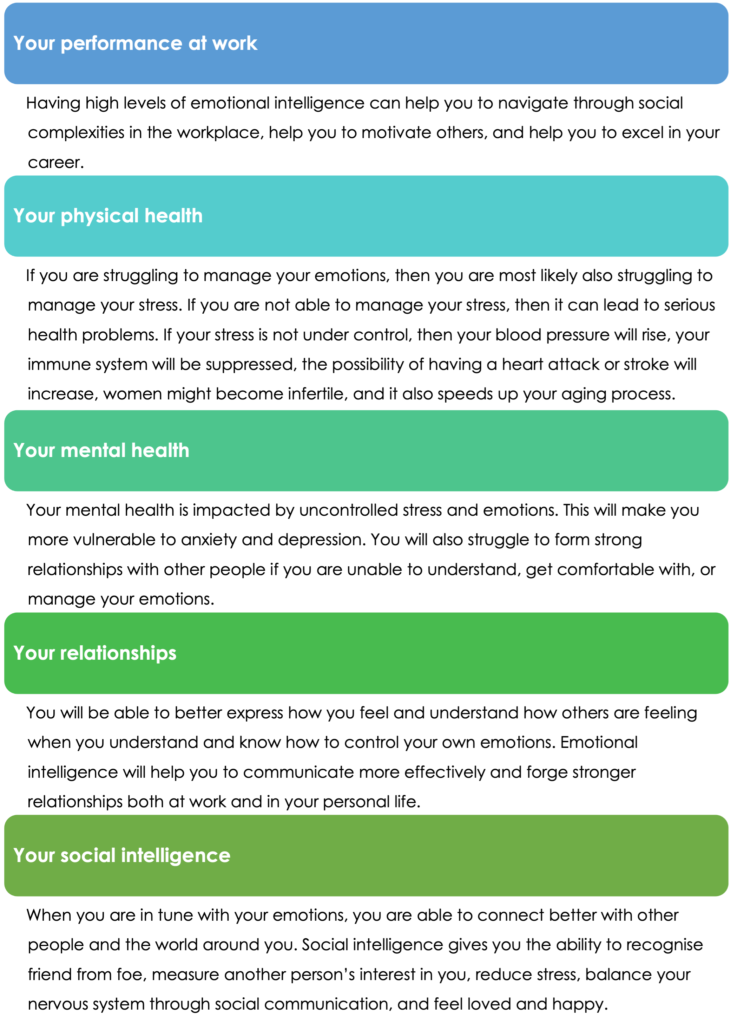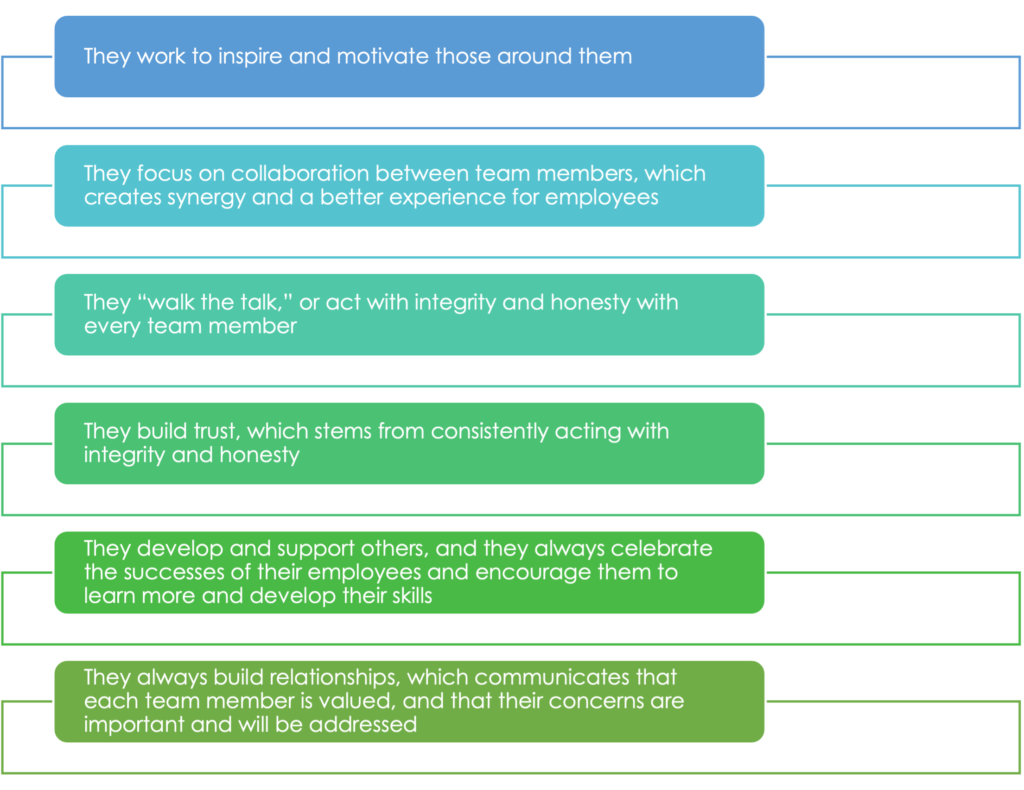By Carli Uys
Head of Marketing, Research and Development (MCom Industrial Psychology and MCom Communication studies)
Leadership skills are in many contexts fairly recognisable. People who take initiative, who have a vision and who accomplish goals are considered to be good leaders. These leaders display their various skills when they are working with their team members. To be a great leader, you have to also focus on improving your skills that contribute to your ability to work well with others and to lead your team to success. This is where emotional intelligence comes in. Emotional intelligence is undoubtedly the core skill you should continuously work on to be a great leader.
Emotional intelligence as a core leadership skill allows your team members to feel comfortable enough with you to come to you with questions, concerns, and their needs. To be able to keep a positive dynamic between you as a leader and your team you need to have a positive perspective, validate each other’s positions despite disagreement, and always be intentionally respectful towards each other. This is a dynamic that works, and it helps everyone involved to feel supported and valued. A leader who lacks emotional intelligence is not able to effectively gauge the needs, wants and expectations of their team members. Leaders who react from their emotions without filtering them can create mistrust amongst their team members and can seriously jeopardize their working relationships. A leader who reacts with erratic emotions can be detrimental to the overall culture, attitudes and positive feelings of the team members and the overall mission of the organisation. Good leaders must be self-aware and understand how their verbal and non-verbal communication can affect the team.
To be a truly effective leader, you need to know and understand how emotional intelligence affects your work, your physical health, your mental health, your relationships, and your social intelligence.
Emotional intelligence affects:

When it comes to the workplace, the bottom line of the organisation is crucial. Leaders, managers and executives are often held responsible for the organisation’s successes or failures. There are 6 key traits that most successful leaders possess that help them to succeed:

Based on a study done by Sunnie Giles she found the top 10 leadership competencies each effective leader should have. She then grouped the top 10 into five major themes that suggest a set of priorities that leaders should focus on to develop themselves.

- Strong ethics and safety: These attributes are about creating a safe and trusting environment. A leader who possesses high ethical standards conveys a commitment of fairness, instilling confidence that both they and their employees will honour the rules of the game. When a leader clearly communicates their expectations, they avoid blindsiding people and ensure that everyone is on the same page.
- Self-organising: These are leaders who provide clear direction while allowing employees to organise their own time and work. It is critical for a leader to distribute power throughout the organisation and to rely on decision-making from those who are closest to the action.
- Efficient learning: To encourage learning among employees, leaders must first ensure that they are open to learning and changing course themselves. Leaders should try to approach problem-solving discussions without a specific agenda or outcome. A leader should withhold judgement until everyone has spoken, and let people know that all ideas will be considered.
- Nurtures growth: When a leader shows commitment to the growth of their employees, then employees are motivated to respond, expressing their gratitude and loyalty by going the extra mile. If leaders want to inspire the best from their teams, they should advocate for them, support their training and promotion, and go to bat to sponsor their important projects.
- Connection and belonging: Leaders who communicate often and openly, and who create a feeling of succeeding and failing together as a pack, build a strong foundation for connection. A sense of connection could also impact productivity and emotional well-being in the team. Creating connections with team members is a leader’s second most important job. Once team members feel safe and cared for, they experience a sense of belonging. A leader can promote a sense of belonging amongst his/her team members, by smiling at them, calling them by name, remembering their interests and paying attention when speaking to them.
The above five areas as well as the 6 key traits of effective leaders are all linked to emotional intelligence. If leaders improve their emotional intelligence, they can create deeper levels of self-reflection and a shift in their perspective. If your team members are not satisfied with your performance as a leader then they will experience low levels of engagement, poor job satisfaction and won’t feel psychologically safe in the workplace.
Part 3 will look at the 5 key elements of emotional intelligence as identified by Daniel Goleman. Part 4 will look at four skills a leader can focus on to increase his/her emotional intelligence and the twelve emotional intelligence competencies that are embedded in the 4 skills.
Right here is the right webpage for anybody who would like to find out about this topic.
You know so much its almost hard to argue with you (not that I actually would want to…HaHa).
You certainly put a new spin on a subject which has been discussed for a long time.
Excellent stuff, just great!
Thanks for every other excellent article. Where else may just anyone get that
kind of information in such an ideal means of writing?
I’ve a presentation subsequent week, and I’m at the look for such information.
Everything is very open with a precise description of the issues.
It was really informative. Your website is extremely helpful.
Thanks for sharing!
Great beat ! I would like to apprentice whilst
you amend your website, how can i subscribe for a blog site?
The account aided me a acceptable deal. I had been tiny bit
familiar of this your broadcast provided shiny clear concept